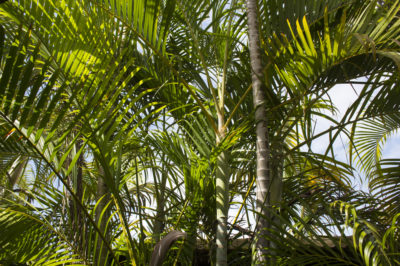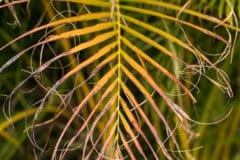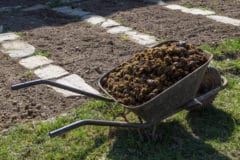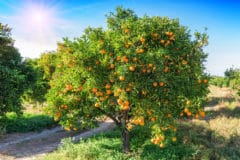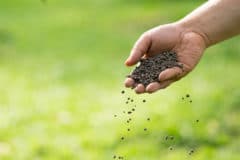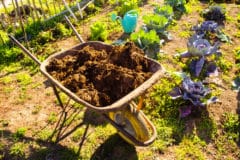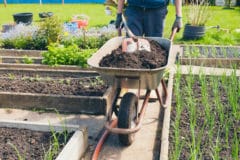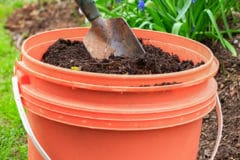Basic Requirements for an Areca Palm
An areca palm needs a lot of light, but it should be indirect. A little full sun in the early morning or late afternoon won’t hurt. The plants like a lot of water – especially when grown outdoors – but don’t do well with waterlogged soil. Make sure your containers have good drainage. Temperatures must remain between 55°F (13°C) and 75°F (24°C).
Soil for an Areca Palm
The areca palm needs soil that is rich but well-drained. It also prefers acidic soil. Perform a soil test periodically – the pH should be below 7.0. Adding peat moss to the soil is one good way to make it more acid; use this strategy when mixing potting soil for arecas in containers. Sulfur, aluminum sulfate and ferrous sulfate can be added to outdoor soils, especially alkaline clay. Follow package directions.
Areca Palm Nutrient Needs
It’s always better to prevent nutrient deficiencies than treat them later. Areca palms have some specific macro- and micro-nutrient needs:
- The big three are nitrogen, phosphorus and potassium (NPK), plus
- Manganese (Mn)
- Magnesium (Mg)
- Boron (B)
- Iron (Fe).
These elements interact with each other. For example, fertilizers with a high N:K ratio can make potassium and magnesium deficiencies worse.
Fertilizing Areca Palms Outdoors
Like many tropical plants, areca palms given the right conditions can grow moderately fast. They are considered heavy feeders and should have fertilizer made specifically for palm trees. Spread slow release granular palm fertilizer (8-2-12 NPK) with micro-nutrients over the soil in spring, summer and fall. For 100 square feet of palm canopy, use up to one-and-a-half pounds of fertilizer.
Fertilizing Areca Palms In Containers
Whether indoors or out, areca palms in containers are susceptible to the build-up of fertilizer salts in the soil. Use a timed-release fertilizer pellet in the spring or use the same fertilizer you use for outdoor palms, three or four times a year. The recommendation is to use one or two teaspoons per six-inch pot and one or two tablespoons for a one-gallon pot. Water well after fertilizing.
Micro-nutrients for Areca Palms
Getting micro-nutrients into areca palms grown outdoors is not too difficult. Container growing is fraught with issues that can cause problems. Salt build-up, pH problems and chemicals like chlorine and fluoride in tap water can interfere with micro-nutrient absorption. Try using a micro-nutrient foliar spray to help manage these problems.
